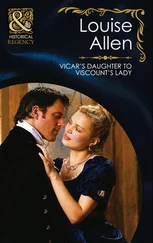Louis Barbé - Viscount Dundee
Здесь есть возможность читать онлайн «Louis Barbé - Viscount Dundee» — ознакомительный отрывок электронной книги совершенно бесплатно, а после прочтения отрывка купить полную версию. В некоторых случаях можно слушать аудио, скачать через торрент в формате fb2 и присутствует краткое содержание. Жанр: foreign_antique, foreign_prose, на английском языке. Описание произведения, (предисловие) а так же отзывы посетителей доступны на портале библиотеки ЛибКат.
- Название:Viscount Dundee
- Автор:
- Жанр:
- Год:неизвестен
- ISBN:нет данных
- Рейтинг книги:3 / 5. Голосов: 1
-
Избранное:Добавить в избранное
- Отзывы:
-
Ваша оценка:
- 60
- 1
- 2
- 3
- 4
- 5
Viscount Dundee: краткое содержание, описание и аннотация
Предлагаем к чтению аннотацию, описание, краткое содержание или предисловие (зависит от того, что написал сам автор книги «Viscount Dundee»). Если вы не нашли необходимую информацию о книге — напишите в комментариях, мы постараемся отыскать её.
Viscount Dundee — читать онлайн ознакомительный отрывок
Ниже представлен текст книги, разбитый по страницам. Система сохранения места последней прочитанной страницы, позволяет с удобством читать онлайн бесплатно книгу «Viscount Dundee», без необходимости каждый раз заново искать на чём Вы остановились. Поставьте закладку, и сможете в любой момент перейти на страницу, на которой закончили чтение.
Интервал:
Закладка:
II
THE COVENANT AND THE COVENANTERS
On the 14th of May 1678, a letter addressed to the King by his Privy Council in Scotland, contained a suggestion of which the adoption was destined to exercise an important influence on Claverhouse’s career. It was written in answer to a prior communication, which it sufficiently explains, and ran as follows: —
‘We have of late had divers informations of numerous field-conventicles kept in several places of the kingdom, who, with armed men, have in many places resisted your authority, and which by your letter, we find has reached your ears, and seeing these insolences are daily iterated, and are still upon the growing hand, and that your Majesty is graciously pleased to ask our advice, for raising of more forces, – It’s our humble opinion that, for the present exigent, there may be two company of dragoons, each consisting of one hundred, presently raised, whose constant employment may be for dissipating and interrupting those rendezvouses of rebellion; and therefore we have recommended to the Major-General, the speedy raising of them; and your Majesty may be pleased to give commissions to such qualified persons as the Major-General hath, at our desire, given in a list, to command these two companies; or to what other persons your Majesty shall think fit.’
In accordance with the advice conveyed in this letter, measures were forthwith taken for raising two additional companies. When formed and officered they were sent to join the troop which Claverhouse already commanded. At the head of this body of some three hundred men he was entrusted with the difficult task of ‘dissipating and interrupting’ the conventicles in the western and south-western districts of Scotland.
To understand the principles, motives, and aims of those against whom Claverhouse was now called upon to take action, it is necessary to recall the circumstances which accompanied and some of the events which followed the signing in 1643, of the ‘Solemn League and Covenant for Reformation and Defence of Religion, the Honour and Happiness of the King, and the Peace and Safety of the three kingdoms of Scotland, England and Ireland.’
In the month of August of that year, the respective committees of the General Assembly and of the Convention of Estates had submitted to those bodies a draft of the document, as it had been drawn up by them, after consultation and deliberation with the Committee of the English Parliament. It had been duly sanctioned, and adopted as the most powerful means, by the blessing of God, for settling and preserving the true Protestant religion, with a perfect peace in all his Majesty’s dominions, and propagating the same to other nations, and for establishing his Majesty’s throne to all ages and generations.
Two months later – on the 11th of October – the commissioners of the General Assembly issued an ordinance for the solemn receiving, swearing, and subscribing of the League and Covenant. It contained special injunctions to the Presbyteries that they should take account of the performance thereof in their several bounds; that they should proceed with the censures of the Kirk against all such as should refuse or shift to swear and subscribe, as enemies to the preservation and propagation of religion; and that they should notify their names and make particular report of them to the Commission.
On the next day, the Commissioners of the Convention of Estates, in their turn issued a proclamation by which, supplementing the censures of the Church, they ordained as a penalty on those who should ‘postpone or refuse,’ that they should ‘have their goods and rents confiscate for the use of the public,’ and that they should not ‘bruik nor enjoy any benefit, place nor office within this kingdom.’
The Covenant, which these ordinances thus required the people of Scotland to subscribe, consisted in an oath binding them to support the reformed religion in the Church of Scotland, in doctrine, worship, discipline and government, according to the Word of God, and the example of the best reformed Churches; to endeavour to bring the Churches of God in the three kingdoms to the nearest conjunction and uniformity in religion, confession of faith, form of Church government, directory for worship, and catechising; to strive, without respect of persons, for the extirpation of popery, prelacy (that is, Church government by archbishops, bishops, their chancellors and commissaries, deans and chapters, archdeacons, and all other ecclesiastical officers depending on that hierarchy), superstition, heresy, schism, profaneness and whatsoever should be found to be contrary to sound doctrine and the power of godliness; to endeavour to preserve the rights and privileges of the Parliaments, and the liberties of the kingdoms, and to preserve and defend the King’s person and authority, in the preservation and defence of the true religion and liberties of the kingdoms; to endeavour to discover all such as had been, or should be, incendiaries, malignants, or evil instruments, by hindering the reformation of religion, dividing the King from his people, or one of the kingdoms from another, or making any factions or parties amongst the people, contrary to the League and Covenant, that they might be brought to public trial, and receive condign punishment, as the degree of their offences should require or deserve, or the supreme judicatories of both kingdoms, respectively, or others having power from them for that effect, should judge convenient; and, finally, to assist and defend all those that entered into this League and Covenant, and not to suffer themselves, directly or indirectly by whatsoever combination, persuasion, or terror, to be withdrawn from this blessed union and conjunction, whether to make defection to the contrary part, or to give themselves to a detestable indifference, or neutrality.
If, at its origin, the Covenant of 1643 was practically a treaty between the heads of the Presbyterian party in Scotland and the leading Parliamentarians in England, it entered upon a new phase after the execution of Charles I. Notwithstanding the hostile attitude of the Presbyterians towards the King himself, they were strongly opposed to the subversion of the monarchical form of government. On the 5th of February, six days after the King’s death, and one day earlier than the formal abolition of the monarchy by the English House of Commons, the Scottish Estates of Parliament passed an Act by which Prince Charles, then in Holland, was proclaimed King, in succession to his father. Following upon this, a deputation was sent to the Hague to invite Charles to come over and take possession of the throne of his ancestors. As a preliminary condition, however, it was required that he should give adhesion to the principles set forth in the Solemn Covenant. This he hesitated to do; and the commissioners returned, well pleased, indeed, with “the sweet and courteous disposition” of the Prince, but disappointed at the failure of their mission, owing to the pernicious influence of the “very evil generation, both of English and Scots,” by whom he was surrounded.
A second deputation, sent shortly after this, to treat with the Prince at Breda, was more successful. Charles, seeing no other way open to him of regaining possession of the throne, gave his consent to the demands of the commissioners. In June 1650, he returned to Scotland. On the 1st of January 1651, he was crowned at Scone. Before taking the oath of coronation, and after the full text of the Solemn League and Covenant had been distinctly read to him, kneeling and lifting up his right hand, he assured and declared, on his oath, in the presence of Almighty God, the searcher of hearts, his allowance and approbation of all it set forth, and faithfully obliged himself to prosecute the ends it had in view, in his station and calling. He bound himself in advance to consent and agree to all Acts of Parliament establishing Presbyterial government; to observe their provisions in his own practice and family; and never to make opposition to them or endeavour to make any change in them.
Читать дальшеИнтервал:
Закладка:
Похожие книги на «Viscount Dundee»
Представляем Вашему вниманию похожие книги на «Viscount Dundee» списком для выбора. Мы отобрали схожую по названию и смыслу литературу в надежде предоставить читателям больше вариантов отыскать новые, интересные, ещё непрочитанные произведения.
Обсуждение, отзывы о книге «Viscount Dundee» и просто собственные мнения читателей. Оставьте ваши комментарии, напишите, что Вы думаете о произведении, его смысле или главных героях. Укажите что конкретно понравилось, а что нет, и почему Вы так считаете.












